
Image Credits: Trinitynews
Irish entrepreneur, Paddy Cosgrave, is the man behind the most popular tech conference – “the Web Summit.” The technology conference hosted annually in Dublin was founded in 2010 by Paddy Cosgrave and co-founders Daire Hickey and David Kelly.
In less than 5 years, the Web Summit has grown from a small team of 3 people to a full time team of over 140. In terms of attendees, Web Summit has grown from 400 attendees in 2010 to 22,000 in 2014, and over 50,000 people have attended Web Summit events across the globe in 2015.
In addition to Web Summit, the team runs a series of founder events, which have been described by Bloomberg as the “Davos for Geeks” and are regular gatherings that include 150 CEOs of the world’s leading technology companies.
In 2015, Web Summit hosted a number of international events including Collision and RISE, based in the US and Hong Kong, respectively. In 2016, Web Summit will be hosting Collision in New Orleans, RISE in Hong Kong and SURGE in Bangalore, besides the flagship Web Summit conference.
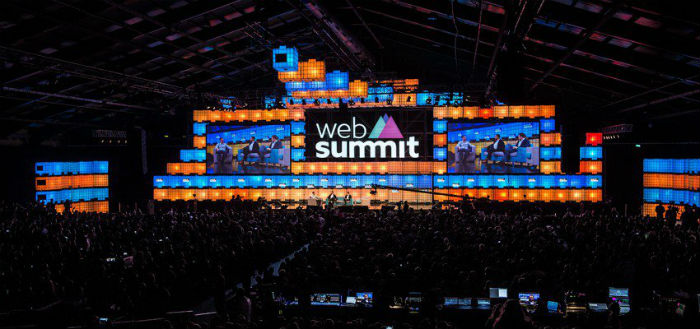
While the team announced SURGE in Bangalore, Paddy visited India earlier this month to have a glimpse of the Indian Startup Ecosystem.
We got a chance to have a chat with Paddy about his journey so far, what he thinks about other tech conferences, why they have shifted from Dublin to Portugal, and what are his plans for SURGE.
Here are the edited excerpts.
Inc42: You come from a Political Science & Economics background which is completely different from what you are doing today. So how did the shift happen and what was the tipping point for you to come up with Web Summit that has now evolved to become one of the most sort after tech conference in the world?
Paddy: Doing those subjects were actually a shift for me. I grew up on a farm where my dad milked cows every day. Before he became a farmer he lived in the city. He studied Maths and Economics and early versions of computer science in Trinity, the top university in the country and against the best advice from the people he knew, he said he wanted to become a farmer. Even though I lived in a very rural area, my house was surrounded with computers and my father was obsessed with them – computer programming and hardware. And now, after being retired for 7 years, he discovered his interest in coding and took it up as a full-time hobby. My dad knew that cows would not be important in my future, but he was very sure that computers were the only future, and therefore, any opportunity I had to learn about computers, he encouraged it.
My dad knew that cows would not be important in my future, but he was very sure that computers were the only future.
When I was about to pursue computer science from the university in Ireland, my mother thought it would be futile and her reaction was “Oh did you not read? The internet didn’t work out, everything is gone bust.” I believe, when you already know about something, you should rather learn something else. When I joined the university, I found people who are interested in building softwares. In the early-mid 2000’s, we started working on different ideas, but never intended to build a company on any of those ideas. We just wanted to make cool pieces of software. When I left college, I had a very clear vision and idea of what exactly I wanted to do i.e building a software company. I started working on it before starting Web Summit. I have had that experience of being a startup at many different startup conferences and knew how it felt.
And In 2010, I got an opportunity to be part of a startup community, but couldn’t find any place for the Irish startup community to meet. Therefore, I organised a small event using my formula and approach which was quite different from other conferences. And thankfully, the approach seemed to be fruitful, and hence, within five years number of participants increased from 400 to 42,000 people from across the globe (134 countries). And for RISE in Hong Kong in 2015, we had 5,500 participants in the first year of the event.
Now, in two and a half months, we are going do it for the first time in India. And we already have more than 2000 people who have registered for the conference, which is not an Indian tech conference, but a global tech conference, an opportunity for the tech ecosystem spread all over to meet in Bangalore.
Inc42: What do you think about all these conferences focused towards startups?
Paddy: I believe that they are incredible and I think there should be more conferences. You know, when I think about the scenario five years ago in Ireland, when no conferences were conducted. We started with Web Summit and now there are many tech conferences, even for UX designers and for iOS UX designers. These are really good for the ecosystem.
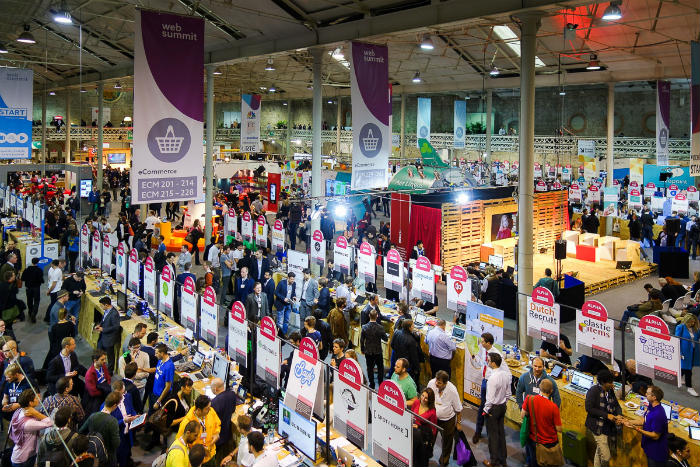
Inc42: TechCrunch had announced its conference in India in 2013 with three editions, but only one took place at the end. Ned Desmond, COO of Techcrunch had said that the company has no plans to partner or invest in India at that time. Looking at that, are their any fear around SURGE?
Paddy: We launched a conference in Hong Kong and were told it’s not going to work out. Fast forward to today, I was being shown around by the second main politician of Hong Kong who said that it is surprising that it worked out for you guys, it never worked out for anybody before. Nobody takes you people seriously. But this really worked to your advantage.” Sometime people just assume that they are from the West and they can go anywhere in the world and things would work out for them. So, for whatever reason it did work for us in Asia and in India, so far it seems to be working and we do take a different approach.
Inc42: Organising conferences on such a large scale is a costly affair. How do you strategise budgeting and make sure you don’t go overboard?
Paddy: You just have to be prudent. We are not venture backed and are entirely bootstrapped, so we are very much careful with everything that we do and sometimes that is really hard. Other startup conferences are venture backed and have deep pockets. Basically, to succeed, you just have to be prudent and don’t get ahead of yourself. We have grown to a 42,000 people conference, but we grew organically over time. So I think for anybody organising the conference in the first year and the second year, don’t overstretch, be realistic and also realise what do people want, what are they looking for in a conference. Usually, people come to network, meet other people and hear great speakers and that’s what you should focus on. The main focus should be on getting great speakers and you should focus on ensuring the networking is as good as it can possibly be.
Inc42: What has been the biggest challenge in making Web Summit what it is today?
Paddy: It’s the same with every startup. The biggest challenge for building any company is talent. An individual doesn’t build a company. So great entrepreneurs or even just good entrepreneurs are good in building the right team because ultimately on day to day basis, you will need to rely on other people to make decisions. The biggest challenge seems to be that.
Great entrepreneurs are good in building the right team because ultimately on day to day basis, you will need to rely on other people to make decisions.
Inc42: Tell us something about your most interesting hire.
Paddy: My most interesting hiring would be Mike Harvey. He was the news editor of the The Times in London, which is the most influential paper in the UK and then ran communications for Google and later he was the director of one of the most important technology PR firms. Persuading him to come over to Dublin was a big task.
We have a pretty good recruiting team, which made the first contact with Mike. Mike came over to the office and met the team. I think people just underestimate how important it is to hire great people. As great as your product is, without great people behind it, it won’t remain great for very long. It was about four months of dating. But he says it’s the third best decision he has made in his life.
Inc42: How big is the Web Summit team? All operating from Dublin?
Paddy: It’s just over a 140 people. The internet allows us to work from anywhere. I mean if you look at WordPress, they are 300 people spread over 40 countries, it’s an entirely remote workforce. Thus, I don’t think you need to be in one place to organise a conference. Many of us would come to the ground a week before the conference and that’s how we operate.
Inc42: Your team basically comprises of data scientists & physicists instead of the people from events background. What’s the main science behind this?
Paddy: We are always looking at new ways to engineer our events in order to perfect our gatherings. We see our events as a way of connecting people and giving them a platform to create value. We call this “engineering serendipity”!
For example, our engineers analyse camera footage collected from our venues. We want to improve the flow of people and networking in general and we are aiming to improve networking opportunities and the overall attendee experience at all our future events including SURGE.
We are always looking at new ways to engineer our events in order to perfect our gatherings. We call this engineering serendipity!
Web Summit’s Data Science department is aptly named as the Engine team. It’s made up of physicists, data scientists, engineers, developers, analysts and data marketers who power the products that build our gatherings.
Through data and design Web Summit brings together startups, investors and influencers to create legendary networking opportunities. We build the best gatherings imaginable (and we have pretty big imaginations) by precision engineering the environments that incubate innovation, enterprise and progress.
We design algorithms that take into account who you are and who you might benefit from being in a meeting with. We persuaded a very talented physicist to leave a job smashing atoms together in mainland Europe to come to Dublin and join the team. We are really committed to make our attendee experiences better, and we tend to obsess over new ways to innovate.

Inc42: How do you use data to organise and differentiate your conferences?
Paddy: At Web Summit, we think that the reason most people remember and value a conference experience is the connections they make. Our polling tells us that many people come for the speakers but they return for the contacts and the networking.
So what is our approach? Our answer is intimacy, powered by great design and powerful data analysis. That approach permeates everything, including and perhaps most critically our mobile app. Just login into our mobile app and you’ll find recommended talks, speakers and attendees personalised to you.
We believe a different approach to conferences is possible, and that different approach can help create the world’s smallest biggest gatherings.
We fixate on helping you find the right people and ideas from millions of possible connections and conversations. In other words, we believe that the desire for human-to-human interaction is still incredibly powerful. It might seem counterintuitive in the age of the machine, but I think that human to human means more now than ever. I believe that humanity’s greatest achievements have been made possible through gatherings of people generating the connections and serendipity that accelerate real-world change.
We work relentlessly to marry great design and powerful data to create a very different type of gathering. While traditional conference companies typically hire experienced event planners, we hire physicists and engineers, some folks who know a thing or two about machine learning and AI, incredible designers and brilliant event planners.
While traditional conference companies fret over manually curating seating plans, compiling speaker lists and handpicking invites for pub crawls, we approach the challenge differently. We build algorithms that take into account who you are and who you might benefit from being on a pub crawl with or at a table with or in a meeting with.
Our answer is intimacy, powered by great design and powerful data analysis. We work hard to “engineer personalised serendipity” at the scale of tens of thousands attendees.
In other words, we work hard to “engineer personalised serendipity” at the scale of tens of thousands attendees. This creates greater intimacy when you bring together such a huge critical mass of interesting people. We help you find the people and ideas that may be of most of your interest from an ocean of millions of possible connections and conversations. Just as Facebook, Twitter and LinkedIn have designed recommendation systems to help you find friends and followers, we’ve done the same for potential attendees and speakers to meet and hear.
We apply this methodology to every small element of Web Summit. Your lanyards and name badges have been custom designed. In the ceilings of our venues, you’ll find GoPros that allow us to overlay what we observe manually with computer vision to help us constantly improve attendee movement and queuing at our gatherings.
Inc42: So if not Web Summit, what would you have started ?
Paddy: Web Summit has become my total passion. I think whatever I would be doing I would still be devoted to the details. Today, Apple is a great phone because somebody was obsessed about its details. What makes things right, is that they get the details right. So whatever I would be doing, I would be obsessed with the details. Even the speakers are important, their details, how do we make them know what they are doing, how do we make their ride from the airport to the venue interesting. You have to care about the details otherwise you are gonna get blinded by the bright lights.
Inc42: Why is Web Summit moving out of Dublin to Portugal?
Paddy: Web Summit needs to grow. We have gone from 400 people five years ago and now we are at 42,000 in 2015. By judgement, hard work and luck, Web Summit has become the largest startup event on the planet. With 90% of attendees coming from overseas.
In the last year, we have expanded internationally. We have had successful Web Summit-style events in Las Vegas, in Belfast and in Hong Kong and we have worked with local governments, local communities and local industry in each of those places.
In other words, we have experience in founding successful events in different venues and we have wide experience of the commercial and logistical problems that need to be overcome.
That experience tells us now that if we are to scale our flagship event further, if we are to deliver to our attendees the experience they demand and they pay good money for, we have to move.
We needed a new home for future growth.
Why have we decided to come to Lisbon? We know that our gatherings live and die by providing the best experience for attendees. We have spent a long months looking at venues across Europe. But we settled on Lisbon because of the combination of the great venue and the great startup community. The people of Lisbon could not have been more welcoming.
Lisbon is on the up. Investors from across Europe have started looking to Lisbon to capitalise on low rents and affordable IT talent. Entrepreneurship in Portugal has enjoyed government support, which includes, for example, the launch of investment agency Portugal Ventures, a €450 million fund.
But don’t take my word for it: here is Mike Butcher from TechCrunch who knows what he is talking about when it comes to startup communities. “Lisbon is emerging as a genuinely new tech ecosystem in Europe, with Berlin-levels of cheapness but with Southern European weather.”
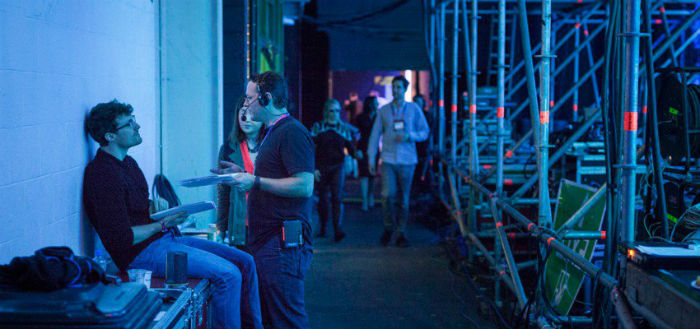
Inc42: How did the idea of launching SURGE in India come up?
Paddy: There are many reasons. In 2011, the founder of Redbus, Phanindra Sama came to Web Summit and we had asked him if there are any other Indian founders that we should invite? His answer was – “there is a really tiny ecommerce startup started by two friends, nobody outside of India has heard of it yet, but I think it could be interesting, it’s called Flipkart and let me introduce you to Sachin.” Then, I had a Skype chat with Sachin and after few months, he showed up at Dublin. It was first time that investors from all over the world were meeting this guy who had started a company called Flipkart with his friend Binny Bansal.
And what started as the trickle of Indian entrepreneurs, four years later turned into a tidal wave by 2014. This year, there were around 80 startups from India at RISE in Hong Kong and there were 52 in Dublin just four weeks ago. So something was happening clearly and many Indian startups were saying, hey this formula works really well. NASSCOM had brought 30 startups to our event in America. It worked in Europe, it worked in Hong Kong. And now they are saying – “Hey we got something else in India, why aren’t you at the single biggest market in the world?” You should be doing something here and I tweeted out in July asking for recommendations and cities in India. Sachin replied that it has to be Bangalore. We kind of had an offline conversation and then he appointed someone from his team to really help us out. Sachin was basically among the first wave of entrepreneurs to come to Web Summit and fast forward four years, he is the guy who convinced us to do it in Bangalore. So in a way he has played a very big role.
Sachin (Bansal) was basically among the first wave of entrepreneurs to come to Web Summit and fast forward 4 years, he is the guy who convinced us to do it in Bangalore. So in a way he has played a very big role.
Inc42: How much is he (Sachin) involved in SURGE?
Paddy: So he has given us all the advice we needed and some of his team have been much more hands on. Same was the case in America, the founder of Zappos, Tony Hsieh. But what’s important is that he gave us enough encouragement to make that decision to come to India. “Nobody has ever managed to do that in India and even within India nobody has managed to build a large tech conference” – these were the two reasons that were holding us back from coming to India. But the guys at Flipkart said, “don’t be silly, you guys know what you are doing, it’s no different anywhere else.”
Inc42: What’s the ticket pricing at SURGE? Is it similar to what it is at other conferences or something special for the Indian technopreneurs?
Paddy: Well, the cost of participation for a startup is half the cost as it is in Europe. So it’s 2000 Euros for four tickets for a startup that is selected for alpha and in India for SURGE it is 950 dollars. That’s half the cost. The big difference is that there were 80 startups from India alone that had participated in RISE and those guys had 4-5 people from their team. The teams had to pay flights and for accommodation and other stuff. So now there is opportunity to have that experience in Bangalore, and all they have to do is, just come out on their streets.
I feel maybe it’s too cheap, as already 2000 people have registered and when people ask how many do you expect to come, I am like, I don’t know, maybe 4000 and people are like 4000 in the first year? I am like yeah.
Inc42: What has been your motivation/inspiration throughout your journey?
Paddy: We fixate on helping you find the right people and ideas from millions of possible connections and conversations. In other words, we believe that the desire for human-to-human interaction is still incredibly powerful. It might seem counterintuitive in the age of the machine, but I think that human to human means more now than ever. I believe that humanity’s greatest achievements have been made possible through gatherings of people generating the connections and serendipity that accelerate real-world change.
I feel that to understand the world, you need to be prepared to seek out diverging and alternative viewpoints.
Inc42: Being CEO & with so much on your plate, how do you make sure you don’t miss on important things?
Paddy: I read a lot and talk to other CEOs and founders all the time. I feel that to understand the world, you need to be prepared to seek out diverging and alternative viewpoints. In life, as in business, seeking out those views, and then making your own mind up, is probably more advisable than seeking your own echo.
[Web Summit is coming to India as SURGE in February, click here for more details]








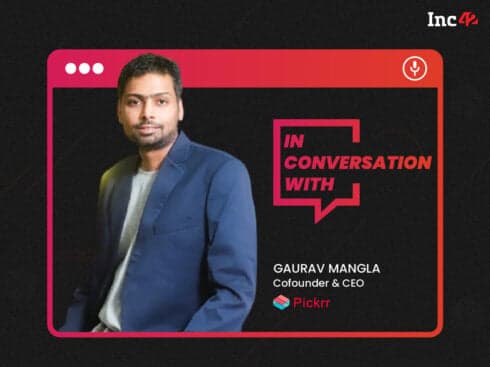
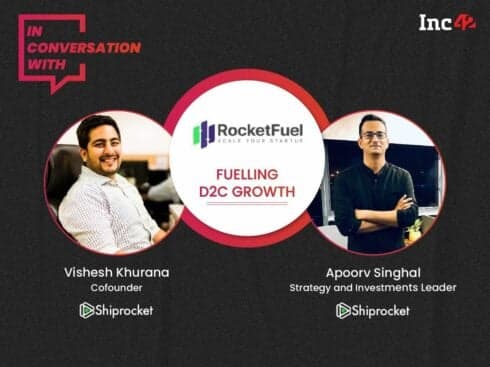
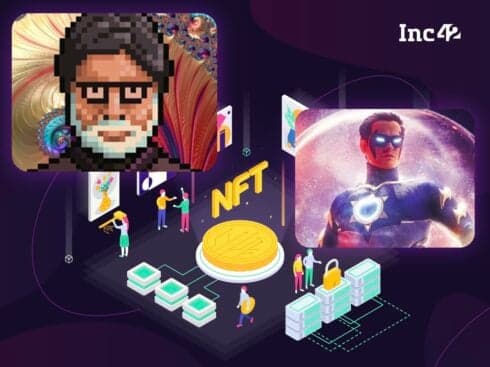




















 Ad-lite browsing experience
Ad-lite browsing experience